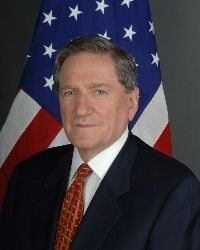Matthew Yglesias's Blog, page 2468
December 16, 2010
In It Together

Lydia DePillis complains a bit about the "city divided" frame:
Alex's beef is basically that by rehashing these tropes that we all know to be true, and grapple with every day–Columbia Heights has both modern retail and poor folks! Gays hang out on U Street now! Sometimes people can't afford to live where they used to!–the project further divides the city instead of illuminating how we often face similar problems and need to think about city-wide solutions. I agree.
I agree with that. But more generally I think people oftentimes miss the extent to which it's the "divided" nature of many of the world's large cities that makes them engines of economic opportunity. Narratives about gentrification—a preexisting low-income community and more prosperous incomers—have a degree of truth to them on a neighborhood scale. But if you think about modern metro areas as a whole over time, this pattern is sort of backward. What happens is that you have an aggregation of professional work—banking, government, legal services, advertising, etc.—and then poor people show up because all these rich people mean there's low-skill service sector work to be had. The result is a kind of Upstairs, Downstairs economy but it's not clear what the alternative is.
This isn't the only kind of city that can exist in the world. The main alternative, though, is the industrial cluster city where a bunch of factories are located near one another thanks to agglomeration effects, and then people work at the factories. You might have a handful of rich bosses here, but in general both rich people and menial service work will be marginal activities in a factory town. But these industrial agglomeration effects have been declining in rich countries for decades, over and above the way manufacturing employment in general has declined. So if you look at American cities, you basically see the "city divided" option or else a Detroit-style downward spiral of decline.
That's not to say we shouldn't be concerned about improving the economic opportunities available to low-income residents of cities like Washington. But the tendency is for people who move up a bit to leave:
Pedro Alfonso, co-founder and head of Dynamic Concepts, a telecommunications firm, said that as soon as an employee begins earning "reasonable money," they leave the District in the hope of buying a home at a more affordable price. Residents with jobs in the District become nonresidents, he said.
There's really nothing wrong with this. Poor people get education or training, get decent jobs, and leave the city. Then new people come in—often from foreign countries—and do low-end work. With luck, their kids do well in school and many of them will leave. Simply put, if you draw a chart of "appeal of city living versus income" you get a dual-peaked curve. The result is a city divided. But it's still really one city. The opportunities of the poor city are directly and inextricably linked to the fortunes of the rich city. And the key quality of life issues about crime, traffic, and all the rest impact people on both sides of the divide.


Diversifying Finland
Annie Lowrey's article on Angry Birds ends with an interesting factoid about Nokia's decreasing centrality to the Finnish economy:
There is one place, though, where the love for Angry Birds is slightly more complicated: Finland itself. The country boasts a highly educated populous, generous government support for innovation, and a big tech sector. But for years, a single company dominated the field. Mobile giant Nokia once made up some 3.5 percent of Finnish GDP—in the United States, that would mean as much as McDonald's, Wal-Mart, and Citigroup combined. It now makes up just 1.6 percent. And Angry Birds found fame on the iPhone, one of the competitors responsible for sapping Nokia's market share. Nevertheless, Finns—big consumers of the game, to be sure—are hoping Rovio's success creates a boomlet in startups. And Rovio itself is thinking sky-high.
Good for Finland.
To think a bit about a broader question, our "Econ 101″ textbooks seem to implicitly assume that we're dealing with an economy full of Nokias. Full of device manufacturers, that is, where production cost curves slope upward at some point. But for firms like Rovio, that's not the case. And in general, developed economies are shifting in the direction of less Nokia and more Rovio. But I'm far from certain we've thought the implications of this through properly.


Bradley Manning in Solitary Confinement

I'm behind the curve on this, but via Ta-Nehisi Coates, Glenn Greenwald summarizes Bradley Manning's detention conditions:
From the beginning of his detention, Manning has been held in intensive solitary confinement. For 23 out of 24 hours every day — for seven straight months and counting — he sits completely alone in his cell. Even inside his cell, his activities are heavily restricted; he's barred even from exercising and is under constant surveillance to enforce those restrictions. For reasons that appear completely punitive, he's being denied many of the most basic attributes of civilized imprisonment, including even a pillow or sheets for his bed (he is not and never has been on suicide watch). For the one hour per day when he is freed from this isolation, he is barred from accessing any news or current events programs. Lt. Villiard protested that the conditions are not "like jail movies where someone gets thrown into the hole," but confirmed that he is in solitary confinement, entirely alone in his cell except for the one hour per day he is taken out.
So as best I can tell Manning is, in fact, guilty of serious crimes. And unlike the nutty and dangerous effort to legally sanction Julian Assange for publishing leaks, I have no problem with the government punishing people who violate the terms of their classification status. But Manning hasn't had a trial and hasn't been convicted. Somewhat punitive post-arrest pre-trial measures are kind of a necessary evil, but the prolonged confinement of Manning under cruel conditions go well beyond the necessary into the straightforward evil.
Incidentally, I assume the majority of humanity, including many of the officials responsible for the conditions of Manning's detention, haven't read Atul Gawande's brilliant March 2009 article on solitary confinement. But absolutely everybody should. It utterly transformed my conception of what it meant to hold someone in isolation like this, and makes the idea of doing it to someone who hasn't even had his day in court seem completely outrageous.


Texas Republicans Fight About Immigration: Are Latinos a Menace, or "Natural Allies" Against "Muslim Immigrant Invasion"
Immigration hasn't traditionally been a sharply partisan issue. The GOP presidential nominees in 2000, 2004, and 2008 all ran on pro-immigration platforms, as did their Democratic opponents. Conversely, many members of congress from both parties were hostile to immigration. You saw more pro-immigration sentiment among Democrats, but strong pro-immigration and pro-immigrant political cultures existed inside the GOP, and especially in its Texas and Florida branches both of which had been pretty successful over the years in winning Latino votes.
But since the 2008 election, conservatism has taken an increasingly cramped and xenophobic view of the world, leaving some on the pro-immigration right somewhat isolated. My colleague Andrea Nill identifies the fascinating case of Steven Hotze, a right-wing Texas activist who's trying to defend a Latino-friendly posture for the GOP in terms of the idea that increased Hispanic migration provides a bulwark against the perils of Muslim immigration:
The majority of the Hispanic culture in America is Christian, pro-family, pro-life and pro-free enterprise. Sounds like they would make great Republicans to me. Let's go recruit them!
Gentlemen, it seems that the real problem we face is the Muslim immigration invasion of America. The Hispanics are our natural allies against the Democrats and Muslims.
Nill counters that "it would make more sense for Latinos in the U.S. to stand in solidarity with the Muslim community against the racist vitriol and anti-immigrant rhetoric coming from the Republican party rather than allowing themselves to be used as a political wedge."
Indeed, I would suggest that the progressive voting record of the Jewish community in the United States indicates that the "divide and conquer through bigotry" approach has some real limits. The tendency is for vulnerable minority groups to prefer to affiliate with coalitions based on ideas of tolerance and pluralism. But it is true that over time we could plausibly see the "whitening" of a great many American Hispanics in the face of some other Other and their entry into the conservative coalition. Indeed, part of the Texas political tradition is the fact that in the Jim Crow Era people of Mexican ancestry were granted official "white" legal status. This doesn't happen, though, if conservatives persist in racist attacks on Latinos, as seen in both Sonia Sotomayor's confirmation hearings and much of their recent immigration related rhetoric. Certainly I've found that my own emotional response to those events has actually surprised me somewhat and in a weird way it was the Sotomayor hearings more than anything else from the 111th Congress that actually made me personally angry.


The Motives of Very Rich People
I don't know Peter Orszag nearly as well as Ezra Klein does, but I'm going to put Klein's piece on Orszag's non-greedy motivations for going to work for Citigroup in my "clever" file.
At any rate, human motivation is complicated and I think it's rare for people's life-choices to be dominated primarily by "doing it for the money" in a crass sense. The important exception to this isn't what happens when you make a career choice, it's what happens when you actually receive your paycheck. I give a modest amount of money to charity every year. The reason I don't give more is, pretty transparently, that I'd rather keep the money for myself. And I think the right thing to say to people who take very high paying jobs in the for-profit sector rather than lower-paying jobs elsewhere, is that if they're not doing it for the money they should give the extra money to someone who needs it more. New York City is full of people who would benefit more from a marginal dollar of consumption than a Citigroup Vice President. Someone with a passion for deficit reduction could even give the money to the US Treasury!
People generally shy away from offering this critique of others because most of us are vulnerable to it ourselves. I don't make as much money as a Citigroup VP, but it's still true that there are people who need money more than I do. And I give some money away, but not as much as my putative philosophical commitments would suggest. But at the same time, it's important not to let a desire to avoid hypocrisy launch an ethical race to the bottom. I'm vulnerable to the "if it's not about the money, you should give more money away" critique, but people who earn much more money than I do are even more vulnerable. We'd have a better world if people talked about this sort of thing more.
This would also, I note, genuinely be a good way for former public servants who have a sincere desire for the excitement and influence of private sector work to take high-powered positions without being vulnerable to having their motivates impugned. Many for-profit firms generate more consumer surplus than do many charities. It would be a mistake to argue that capable and ethical people should avoid working in the for-profit sector. But people with a lot of money have an ethical obligation to give money to people who need money more than they do.
So with all this said, I'm going to give $100 away today and so should you. And in keeping with my new "just give money to poor people" thinking, that's how I'll do it.


Free Markets and Safety Nets

An important point from David Leonhardt:
It's easy to look at the current debate and see an unavoidable trade-off between this country's two economic traditions — risk-taking and security. But I don't think that's quite right. I think it is ultimately as misplaced as those worries about Social Security and Medicare equaling Bolshevism.
Guaranteeing people a decent retirement and decent health care does more than smooth out the rough edges of capitalism. Those guarantees give people the freedom to take risks. If you know that professional failure won't leave you penniless and won't prevent your child from receiving needed medical care, you can leave the comfort of a large corporation and take a chance on your own idea. You can take a shot at becoming the next great American entrepreneur.
I would add that this merging of goals occurs not just at the individual level, but also at the social level. Over time, technical and organizational improvements lift living standards. That's why people in 2010 are better-off than people in 1910. But these innovations can be quite bad for individual people. Desktop publishing software severely reduced the value of the human capital possessed by people (like my mother) who had advanced specialized skills in the kind of page layout that involved X-Acto knives and actual paste. People will natural seek to use their influence over the political process to mitigate their exposure to these kinds of risks. Mitigating risk-exposure via a broad social safety net allows economic progress to continue, whereas mitigating risk-exposure through tailored efforts to protect incumbents does a lot of harm.
Either way, it's worth taking the safety net metaphor seriously. Typically when you see a safety net in place, you're not really looking at someone who's trying to be safe. You're looking at someone who's trying to do something dangerous. Because it's dangerous, there's a safety net in place. But the main point of the net is to facilitate risky-taking behavior not to make you safer than the average person.


Chin-Strumming on the Constitution
I think talking about "constitutional law" is 97 percent pointless, but as an intellectual exercise here's a question from Radley Balko and an answer below the fold:
Putting aside what's codified Bill of Rights, which was ratified after the main body of the Constitution, do you believe the Constitution puts any restrictions on the powers of the federal government?
If your answer is yes, what restrictions would those be? And what test would you use to determine what the federal government can and can't do? I've written this before, but after Wickard, Raich, and now, if you support it, the health insurance mandate, it's hard to see what's left that would be off-limits. I mean, during her confirmation hearings, Elena Kagan couldn't even bring herself to say that it would be unconstitutional for the federal government to force us to eat vegetables every day. (She did say it would be bad policy — but that's a hell of a lot different.)
If your answer is no, that is, that the Constitution puts no real restraints on the federal government at all, why do you suppose they bothered writing and passing one in the first place?
To answer this seriously, I think the key point here is precisely to recall that the Bill of Rights wasn't in the initial draft of the constitution. But that's not because the Founding Fathers were illiberal people who didn't care about freedom of religion or who wanted the federal government to quarter troops in people's houses. Their thinking was that a Bill of Rights was unnecessary, because the main body of the constitution constituted a limited grant of authority that safeguarded individual liberty. Soon after, the leaders of the early republic quite rightly changed their minds and decided it would be better to add a Bill of Rights. This, along with the 14th Amendment, now serves the purpose of blocking federal action in the name of individual liberty. But even if you take the extreme view that Article II doesn't prohibit anything other than what's prohibited by the Bill of Rights, that doesn't mean the original constitution created an unlimited federal government.
I wouldn't go that extreme, but I would say that amendments 1-10 and 14 carry the vast majority of the weight of protecting individual liberty and leave the "main constitution" with the important role of establishing procedural rules for the federal government.
My counter-question to libertarians is what kind of moral (as opposed to legal) weight is the distinction between federal and state government supposed to carry. It's clear to me that when the Radley Balkos of the world contemplate forcible vegetable-eating they're primarily expressing concern for human freedom not for the law. And even under the libertarian theory of the commerce clause, state government is totally unconstrained in this regard. Our only defense against state-level tyranny is the Bill of Rights and, in practice more importantly, the day-to-day functioning of the political system. Does that mean freedom is dead? Does it mean freedom would be dead anyway, even if we adopted a much more hardcore view of the commerce clause?


December 15, 2010
Endgame
But mostly I'm a hypocrite, I sing songs about the deficit:
— My dream job.
— Mitt Romney and the mandate flip-flop.
— This is really unhinged.
— Was China behind Stuxnet?
— Giant drone will fly next spring.
In honor of the tax cut deal, it's Jenny Lewis' "Rabbit Fur Coat".


Do Conservatives Have a Problem With Fiscal Stimulus?

(cc photo by LateNightTaskForce)
I liked Scott Sumner's National Review article about why conservatives should embrace level-targeting of nominal expenditure as monetary policy, but this paragraph left me sort of scratching my head:
This sort of policy regime addresses many of the liberal arguments for big government. Right now conservatives don't have good counterarguments to Paul Krugman's insistence that all the laws of economics go out the window when we are in a "depression." Classical economics assumes full employment; how credible are classical arguments against federal job-creation schemes when unemployment is 9.8 percent? Yes, government intervention doesn't even work very well when there is economic slack. But with NGDP futures targeting, there is no respectable argument for fiscal stimulus, as the money supply would already be set at the level expected to produce the desired level of future nominal spending.
As a way of surveying the political scene, this seems very shortsighted to me. Yes, it happens to be the case that in January 2009 Barack Obama was President of the United States, Susan Collins was the pivotal member of the US Senate, Paul Krugman had a New York Times column, and David Obey was chair of the House Appropriations Committee. Consequently, we got a stimulus bill oriented around progressive objectives and a lot of Krugman columns about the virtues of stimulus. But if you think back to January 2001 when George W Bush was President, the GOP ran the House, and Dianne Feinstein was the pivotal Senator as I recall our response to the recession was a large debt-financed tax cut. A large debt-financed tax code sold, mind you, with Keynesian arguments about the need to fight the recession.
And here, thanks to Google, is David Ignatius :
Bush made his remarks at a motorcycle plant — hardly a Keynesian venue — but the British economics sage himself couldn't have put the argument for fiscal stimulus any better. [...] That's what Bush has been doing, with his tax cut and rebate and — perhaps by accident — it turns out to be precisely the right policy. Anyone who bleats about the effect of this fiscal stimulus on the future budget surplus or the Social Security trust fund is, in my view, missing the point. We have a spreading economic crisis, and right now "saving Social Security" is a secondary worry.
Whatever the merits of stimulus in general, or tax cuts versus spending, I think there's no serious argument against the proposition that economic conditions in 2001 were much less dire than those of 2009. And yet there was huge embrace of Keynesian logic on the part of folks who liked the idea of cutting taxes.
That's not to say Sumner is right or wrong about NGDP targeting, but I think he'd have a better understanding of some of the reasons why it's hard to persuade people of his view if he had a more realistic look at the political landscape.


Civilian Sidekicks

My contribution to the "Richard Holbrooke is dead" genre:
More disturbing — because it's presumably better considered — is Gen. David Petraeus' decision to pen a postmortem homage to Holbrooke that includes the line "I used to note to him and to various audiences, with affection and respect, that he was my 'diplomatic wingman.'"
The affection and respect Petraeus expressed were doubtlessly both genuine, but the sentiment is mistaken. It reverses the proper relationship between civilian and military authorities — generals and their troops are supposed to serve political objectives outlined by civilians, not view civilians as adjuncts to military campaigns. Holbrooke, though, likely would not have been offended. When told he was to be Petraeus' civilian counterpart in the region, he told Der Spiegel that he laughed in response: "He has more airplanes than I have telephones."
It's funny because it's true, but it's also a huge problem for America.


Matthew Yglesias's Blog
- Matthew Yglesias's profile
- 72 followers




